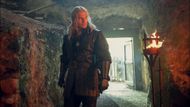As The Witcher moves closer to its endgame, all eyes may be on the series finale, but it’s Season 4 that’s doing the heavy lifting when it comes to emotional depth. Recent insights from Redanian Intelligence reveal that this season will shine a light on the formative pasts of two key characters, Milva and Cahir, through powerful flashbacks. These aren't throwaway scenes. They’re woven in to enrich the emotional arcs that have long simmered beneath the surface.

How a local fantasy series became a global giant
The journey of The Witcher began in the 1990s with Polish author Andrzej Sapkowski, whose short stories evolved into a sweeping literary saga. Geralt of Rivia, the stoic monster hunter with a code of his own, quickly became a cult figure. The video game adaptations, particularly The Witcher 3: Wild Hunt, catapulted the franchise to international fame. But it wasn’t until Netflix's live-action adaptation hit screens in 2019 that The Witcher firmly planted its flag in pop culture, combining high fantasy with heavy doses of emotional and political complexity.

The past isn’t done with Milva and Cahir
Season 4 sets out to do something rare in fantasy storytelling: pause, breathe, and reflect. Instead of charging forward with action, it circles back. Milva, played by Meng’er Zhang, steps into the spotlight with a storyline that traces her roots. One flashback shows her as a young girl learning to shoot a bow, guided by her father, Old Barring (played by Chike Chan). It’s not just a sweet moment, it’s a window into the resilience she learned early, a thread that ties directly into the character we meet in the present. The scene is lifted from The Lady of the Lake, the final book in Sapkowski’s series, showing that even as the show remixes timelines, it remains grounded in the source material.
Cahir’s flashbacks promise to be just as revealing. Once a cold, single-minded Nilfgaardian soldier, he’s spent much of the series teetering between redemption and ruin. This season, viewers will meet his father Ceallach (played by Christopher Sciueref), a senior officer in Emperor Emhyr’s court. Their relationship will provide insight into Cahir’s sense of duty and the psychological weight he’s been dragging through the story. The emotional complexity has always been there, now we finally get to see where it comes from.

These aren’t just memories. They’re foundations.
It’s easy to treat flashbacks as filler, but Season 4 takes a different approach. These moments matter because they shape how we understand each character moving forward. In a world packed with monsters, mages, and kingdoms in conflict, these quieter stories offer something more rare: emotional honesty. The show is clearly interested not just in how these characters fight, but why they do, and what they carry with them when the sword goes back in the sheath.
Setting the stage for the final storm
Though Season 5 will ultimately close the curtain on the saga, Season 4 is doing the work of laying that emotional groundwork. It continues to adapt portions of The Lady of the Lake, but rather than rushing toward a dramatic finale, it’s letting characters breathe. This long-form approach lets the audience experience transformation as it happens, not just in climactic bursts, but in the soft-spoken spaces in between.
It’s a creative choice that lines up with the way the show has always treated Sapkowski’s world: with reverence, yes, but also with just enough freedom to make it resonate on screen. Bringing some of the emotional beats from the final novel into the penultimate season could give the finale the room it needs to focus on resolution, not exposition.

A fandom divided but invested
Of course, no recent season comes without its share of buzz. Henry Cavill’s departure sparked widespread concern, and fans were quick to voice their hesitation over Liam Hemsworth stepping in as Geralt. That said, the series remains one of Netflix’s top performers, and performances by Anya Chalotra (Yennefer) and Freya Allan (Ciri) continue to receive consistent praise. The shift in casting may be a hurdle, but the foundation laid by the cast and writers is strong.
If anything, this season’s emotionally rich material may give audiences a reason to stick around, not just for dragons or battles, but for the quieter, more personal stakes that truly elevate the series.

Looking backward to move forward
There’s a reason Season 4 feels like the calm before the storm. By diving into the pasts of Milva and Cahir, the show isn’t just fleshing out character backgrounds, it’s reminding us that these people are more than their roles in the plot. They’re children of loss, soldiers of circumstance, survivors of choices they didn’t always get to make.
And when the final season does arrive, it may feel all the more powerful because of this one, a season willing to slow down, to remember, and to remind us that destiny is shaped not only by where we’re going, but by where we’ve already been.
